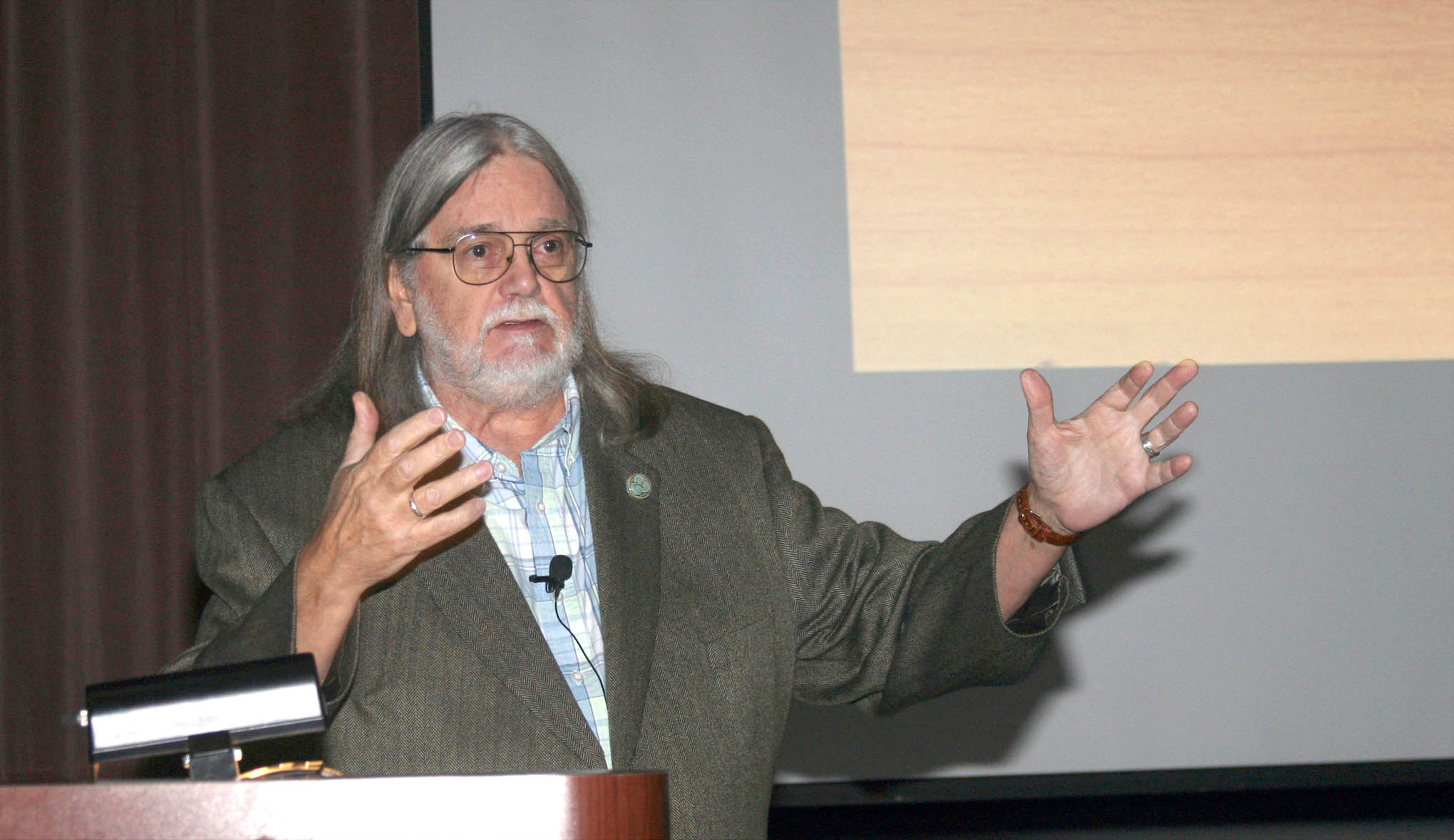
Dr. Stanley Graham Knick recently spoke about contemporary issues facing Native Americans during a presentation at Central Carolina Community College.

SANFORD - Native Americans face a number of major struggles, from stereotypes that diminish individuals to governmental policies that limit tribal autonomy, according to anthropologist Dr. Stanley Graham Knick. And some even come from inside the community.
Knick, who specializes in Native American health, archaeology and culture, gave his assessment to Central Carolina Community College students in "Contemporary Issues Facing American Indians." His presentation on Sept. 11 at the Dennis A. Wicker Civic Center was part of an annual college series on culture.
Most of the current challenges are deeply rooted in history -- and even in how native people are defined. The title of Knick's presentation probably raised a few eyebrows, since the term "American Indian" isn't used much any more.
"One of the problems with cultural identity for native people is that there is really no good word for 'Indian,'" Knick said, describing how people from many different tribes never saw themselves as part of any broader group.
Terms have been imposed on the tribes. Older native people still gravitate toward American Indian. Younger people prefer Native American. Then there's First Nations, a variation that gained popularity in Canada.
What does Knick recommend? "Try to find out what tribal nation they belong to, because that would be what they will prefer," he told the students. "Because that's who they are."
For the rest of his hour-long presentation, Knick described a range of other challenges.
Stereotypes can limit opportunity and diminish people's individuality, he said, citing examples from less-flattering depictions on 1950's television to well-meaning contemporary notions that all Native Americans are environmentalists.
Others include complex legal and public policy debates. Where are the limits of religious freedom, even given divisions within a tribe? How can tribes retain political sovereignty and judicial independence given their relationship with federal and state governments?
That one becomes even more complex, since policies are constantly shifting. "The only thing that's been consistent about governmental policy towards Indians," Knick said, "is that it is has been inconsistent."
Until his retirement, Knick served as Research Associate Professor of American Indian Studies at The University of North Carolina at Pembroke, where he also directed the university's Museum of the Southeast American Indian.
While Native American culture was the focus of his discussion, Knick's own background blends Irish and Scot heritage, and his interest in traditional cultures spans the globe. Studying cultures isn't only about understanding other people, he says. It's about understanding yourself.
Bianka Stumpf agrees. As CCCC's lead social sciences instructor, she scheduled this topic because it cuts across academic disciplines. University transfer students in history, literature and sociology all examine the Native American experience as part of their studies.
But she believes its value goes far beyond historical events and social theories. "The college also is dedicated to helping students develop as whole persons," she says. "Being able to take other people's perspectives cultivates a respect for others and a broader sense of what community means."
Knick's appearance was made possible by funding from the North Carolina Humanities Council, a statewide nonprofit and affiliate of the National Endowment of the Humanities.
For information about Central Carolina Community College and its programs, visit its website, www.cccc.edu or call the college at 919-775-5401.

Dr. Stanley Graham Knick recently spoke about contemporary issues facing Native Americans during a presentation at Central Carolina Community College.